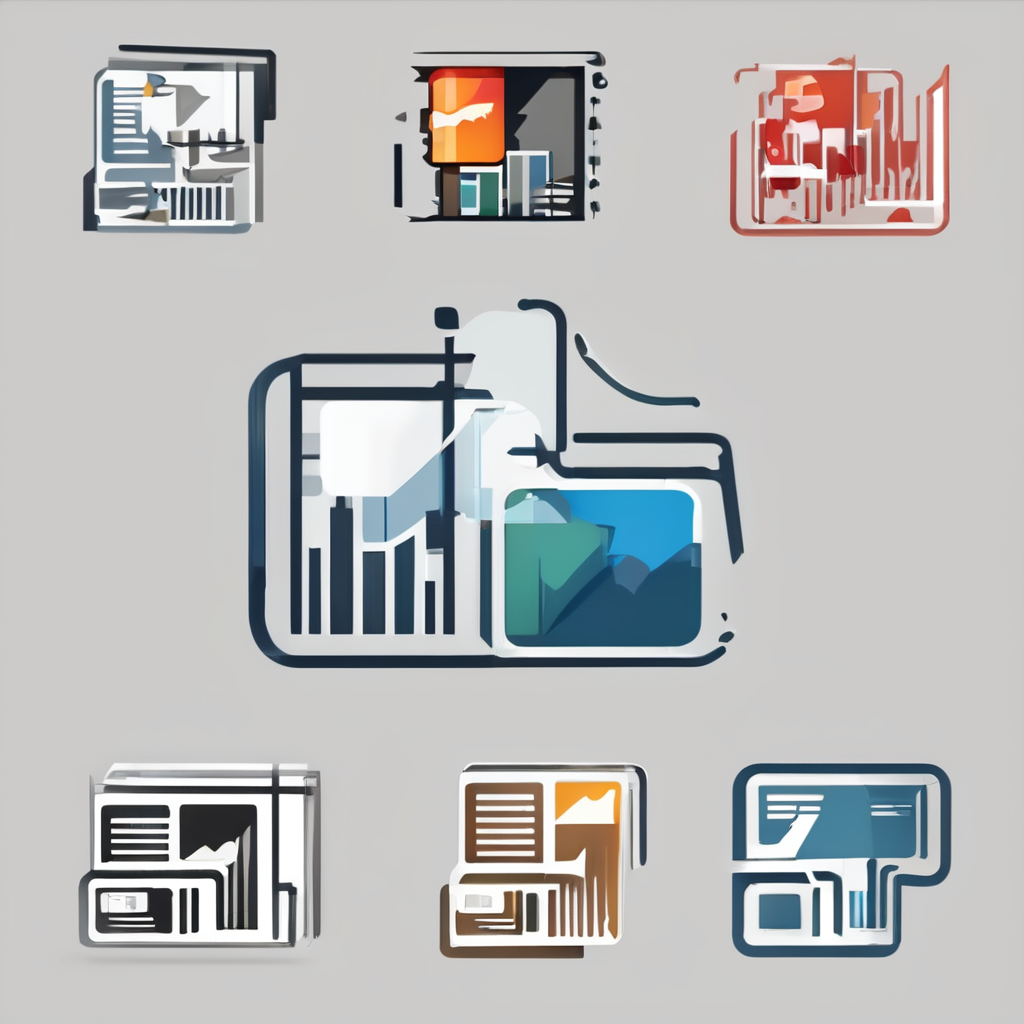Overview of Blockchain Technology
Blockchain fundamentals are transforming the world with their unique capabilities. At its core, blockchain is a decentralized digital ledger that records transactions across multiple computers, ensuring that any involved record cannot be altered retroactively without the consensus of the network. This underpinning principle enhances transparency and security, making blockchain technology a pivotal innovation in various sectors.
Blockchain’s impact extends far beyond finance. Its technology impact is particularly notable in industries like healthcare, supply chain, and agriculture, where it promises revolutionary changes. In agriculture, blockchain fosters agricultural innovation by improving supply chain transparency and traceability, ensuring that every step of the product’s journey can be meticulously monitored and verified.
Also to discover : What Are the Key Indicators of Success in the UK Business Sector?
One of the standout features of blockchain is its decentralization – the removal of a central authority enables greater autonomy and resilience in the system. Moreover, the cryptographic principles that secure blockchain make it incredibly secure against fraudulent activities. These characteristics collectively drive the technology impact of blockchain, making it a powerful tool for innovation.
By reshaping how information is recorded and shared, blockchain is at the forefront of technological advances, helping to redefine industry standards and expectations. Whether through enhancing operational efficiencies or supporting new business models, its influence is undeniable and growing.
In parallel : How Are Brexit Regulations Affecting UK Small Businesses?
Transformative Advantages for UK Agricultural Cooperatives
Blockchain technology offers several benefits to UK agricultural cooperatives, significantly enhancing operational efficiencies. A crucial advantage is the enhancement of supply chain transparency and traceability. With blockchain, each transaction is securely recorded, ensuring that every phase, from farm to fork, is verifiable and authentic. This bolstered transparency is instrumental in building consumer trust and maintaining product quality.
Additionally, payment processing and contract management are streamlined, thanks to blockchain’s decentralization. Smart contracts automate agreement execution, mitigating the risk of human error and reducing the incidence of disputes. This automation not only simplifies administrative tasks but also ensures quicker and more reliable payments.
Moreover, blockchain’s integration can lead to increased operational efficiency by reducing costs. Through eliminating intermediaries and providing real-time data access, cooperatives can optimize logistics, minimize delays, and make informed decisions swiftly. These reductions in overheads allow resources to be better allocated to other vital areas such as innovation and development.
In summary, blockchain is pivotal for enhancing the functionality and competitiveness of UK agricultural cooperatives. By prioritizing transparency and efficiency, it fosters a more sustainable and resilient agricultural sector, poised to meet future demands.
Practical Applications of Blockchain in Agriculture
Blockchain technology opens an array of blockchain applications in agriculture, introducing innovative solutions that are transforming industry practices.
Smart Contracts in Agricultural Transactions
Smart contracts play a pivotal role in streamlining agricultural agreements. These digital contracts automatically execute terms when conditions are met, reducing the potential for human error and disputes. For example, payment to a supplier can be triggered automatically once goods are confirmed to have reached a destination, ensuring a seamless transaction process.
Tokenization of Assets
Tokenization in agriculture allows for the division of large assets into smaller, tradable tokens. This process enables fractional ownership and investments, making the agricultural sector more accessible to a broader range of investors. Farmers can raise capital by issuing tokens backed by their produce or farmland, enhancing liquidity and investment opportunities.
Digital Marketplaces for Farmers
Digital marketplaces empower farmers to sell directly to consumers, bypassing traditional intermediaries. These platforms offer fair pricing and transparency, driving competitive markets. With blockchain, each product can have a traceable record, assuring buyers of quality and origin. This fosters trust and encourages sustainable practices in agricultural communities.
Case Studies Highlighting Successes
Blockchain case studies underscore the transformative potential of agricultural technology. Several success stories have emerged, demonstrating tangible benefits for UK agricultural cooperatives. For instance, Yorkshire Agricoop leveraged blockchain to enhance transparency in its supply chain. By implementing blockchain, they have markedly improved product traceability, leading to increased consumer trust and better market positioning.
On a global scale, blockchain projects in India have revolutionized how small farmers access markets. Farmers in Maharashtra employ blockchain to track produce from farm to market, enhancing the visibility of their goods and ensuring fair compensation. This move has resonated well with buyers, allowing for more equitable transactions.
Insights from industry stakeholders affirm the value of blockchain for innovative agricultural practices. Speaking with a director from Wales Farm Tec, he highlighted the reduction in administrative burdens through smart contracts, effectively freeing resources for development and innovation. This proves that blockchain’s capabilities extend beyond mere transactions, reaching into operational efficiency and innovation empowerment.
These case studies illustrate the varied applications of blockchain in agriculture, showcasing a compelling argument for its continued integration into agricultural practices. Through collaboration and strategic deployment, the potential for blockchain to address persistent challenges in agriculture is immense.
Potential Challenges of Implementing Blockchain
Implementing blockchain in agriculture presents several challenges alongside its potential benefits. Technology adoption costs are a significant concern, as establishing the necessary infrastructure demands substantial investment. Many smaller cooperatives may find initial expenses daunting, slowing widespread adoption. Moreover, the requirement for robust technical infrastructure is a barrier, especially in rural areas with limited technology access.
Data privacy concerns pose another challenge. Blockchain’s transparency, while beneficial for tracking transactions, raises questions about personal and operational data confidentiality. Ensuring compliance with regulatory frameworks, such as GDPR in Europe, is essential to address these privacy issues and maintain trust among stakeholders.
Resistance from traditional farming practices presents a challenge to blockchain’s implementation. Many agricultural players are accustomed to conventional methods, making resistance likely due to comfort with existing systems. Overcoming this resistance requires demonstrating the tangible benefits of blockchain and providing comprehensive training.
Finally, implementation barriers also include the complexity of integrating blockchain with existing systems. Seamless integration is crucial to ensure operational efficiency and prevent any disruption in workflows. Concerted efforts from technology providers and stakeholders are vital to overcoming these challenges and ensuring successful blockchain adoption in agriculture.
Future Outlook for Blockchain in UK Agriculture
The future of blockchain in UK agriculture promises an era of transformation marked by emerging trends and strategic advancements. As technology trends continue to evolve, blockchain is expected to spearhead innovations in agricultural innovation, focusing on sustainability and efficiency. Rapid advancements are catalysed by startups vigorously exploring new applications and business models, striving to overcome existing limitations.
Predictions suggest that government support will increasingly become pivotal. Policies fostering technological growth can greatly enhance blockchain adoption by providing necessary infrastructure and initiating technology trends that encourage innovation. As governments recognise the undeniable benefits, it’s anticipated there will be incentives and initiatives aimed at accelerating adoption rates.
The role of startups is particularly crucial, driving forward-thinking experiments in technology integration, which translates into tangible solutions for agricultural challenges. Their ventures are likely to underpin future agricultural practices, affecting everything from resource management to productivity optimization.
Given these developments, blockchain’s potential is immense. The strategic adoption of these innovative trends heralds promising opportunities, elevating the UK’s agricultural competitiveness on a global scale and setting a precedent for other industries to follow. In this seamless integration lies a blueprint for a robust and sustainable agricultural future, powered by technology.






